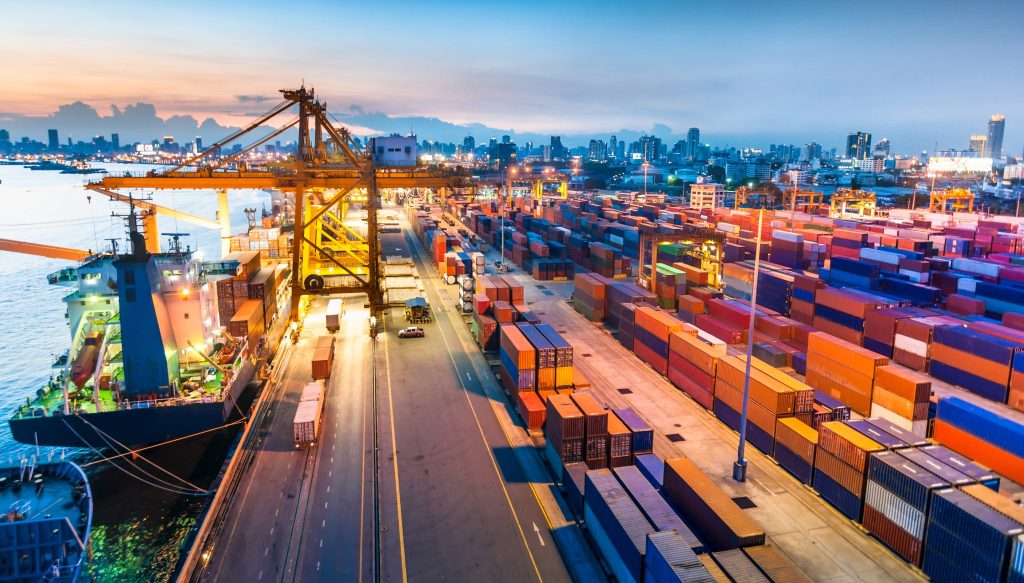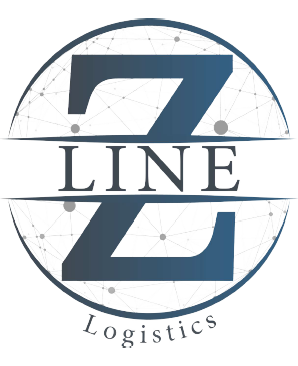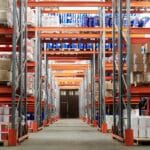Table of Contents
One of the most common questions we face is what is Freight Forwarding and Customs Compliance?
The modern interconnected globe is now the daily bread of international trade as movements of vector goods are the same.
At the heart of this intricate web of logistics lies two crucial elements: outsourcing, utilization of 3PL warehouses, and customs compliance.
These two elements not only collect but also adequately encompass and guarantee the system’s smooth running, in addition to playing a major role in the compliance as well as the borderless trade.
In this blog we will take a tour through Freight Forwarding and Customs Compliance as well as amazing trade world with forwarders playing a vital role and tackling customs procedures on the table.
What Is Freight Forwarding and Customs Compliance?

Freight Forwarding
At the heart of freight forwarding is a service-centered industry that deals primarily with the control and coordination of shipments of individuals or businesses that are looking to move goods from one location to the other, predominantly across international boundaries.
The freight forwarders act as ‘brokers or middlemen’ between shifters (shippers who ship the goods) and transporting companies, such as airlines, ocean carriers, railroad, liner, trucking, etc., carriers.
The main purpose is to apply to reduce and ensure the flow of goods from their starting place to the final point under control of monetary factors.
Freight forwarders handle various tasks, including:
Booking Cargo Space: Truck or ocean freight carriers might be approached by them for the most appropriate carrier for that shipment depending on the nature of the cargo and its destination.
Documentation: They liaise with the shipping line and prepare documents for international shipping, for example, and this includes waste bill of lading, commercial invoices, packing lists, customs documentation, and any other paperwork needed.
Customs Clearance: Although not necessarily the chief duty of customs and freight forwarders, they usually help in preparing and submitting the crucial information to the customs services to enable the unhindered movement of eth goods across the borders.
Warehousing and Distribution: They could possibly organize availability of storage depots, and their distribution services can include warehouse space, inventory management, and order fulfillment, as demands increase.
Overall, Freight Forwarding and Customs Compliance services are very important for companies engaged in international shipping, since they simplify that process, optimize logistics and help ensure the goods’ safe and prompt delivery that is at the same time cost effective and reduces risks related to transportation.
Customs Compliance
Customs compliance implies the execution of the customs regulations, laws, and procedures which the authorities have ascertained to require for goods entering customs when they are imported and leaving customs when they are exported across borders.
These regulations vary from country to country and encompass a wide range of requirements, including but not limited to:
Tariff Classification: Assigning the right tariff classification system which holds the correct code for goods considering their nature, composition, intended use, and the effective tax and duty based on the code.
Valuation: Making sure the option of imported goods are properly valued for customs purposes, it can mean the transaction value, any applicable adjustments, and their intention to determine customs duties and taxes.
Documentation: Ensuring that an accurate and complete set of documentation for the customs clearance is there like commercial invoices, the packaging list, certificates of origin, and any additional forms.
Duties and Taxes: Receiving clearance from the central customs authority and paying the applicable customs duties, taxes, and fees associated with importing or exporting goods, based on the rights stipulated in the valid tariff rates and regulations.
Regulatory Compliance: Adherence to the different regulations introduced by Customs departments as well as the other government institutions, including minimum product requirements, trade restraints, sanctions and license issue requirements.
Being in compliance with custom regulations is imperative for businesses that conduct any form of international trade in order to minimize export delays, penalties, fines and other consequences.
Much is made by many companies in customs broker services, consultants, or in-house customs compliance teams, which aim at setting free from customs obstructs and quickly customs clearance for their company goods flow.
Read More: What is last mile delivery in logistics and cold chain?
What are The benefits of Freight Forwarding and Customs Compliance?

Freight Forwarding and Customs Compliance could be of numerous benefits to businesses that deal with international trading from avoiding problems at customs clearance to the risk reduction and the efficiency increase in the business operations.
Here are some of the key benefits of Freight Forwarding and Customs Compliance:
Smooth Customs Clearance: Compliance with customs regulatory measures is imperative if you are to ensure that shipments of goods clear customs without delays and problems. Proper records, including clearance, can be of a great help when it comes to faster business processes, while preventing goods being held up at customs.
Reduced Risk of Penalties and Fines: Failure to comply with the customs regulations can cause penalties, fines as well as measures such as detention, conventional penalties etc. imposed by customs authorities. By abiding to customs requirements, businesses will be able to steer clear of those costly consequences and keep their reputations and credibilities in the sight of customs administrations and their agents.
Minimized Delays and Disruptions: Adherence to Freight Forwarding and Customs Compliance serves a goal of decreasing the practical possibilities for apparent issues in customs that may cause delivery delays and disruptions. Thus, freight shipping is able to provide reliable service by delivering goods on time, safeguarding customers’ expectations and accomplishing contractual and/or regulatory requirements.
Improved Supply Chain Visibility: The compliance with the customs regulations ensures the availability of the required documents, as well as proper origin and shipment logistics. This gives visibility and traceability which helps the long distance transport data and control management of its supply chain operation in a proper manner.
Cost Savings: Businesses could be potentially saving money in case they paid attention to custom clearance laws and regulations. Through precise assessment of custom fees, duties and taxes businesses can effectively reduce expenditures not required and consequently maximize the input cost of their supply chain.
Enhanced Market Access: Frequently, Freight Forwarding and Customs Compliance serve as formal prerequisite for selling original products in foreign regions. Compliance with norms and procedures on trade of goods to and from a market enlarges a business’s options, and if the business does that, then it will benefit largely from global trade opportunities.
Mitigated Legal and Regulatory Risks: Failure to comply with regulations specific to customs may degrade a company’s standing when it comes to the law and policy, this results in such consequences as legal processes, reputational injuries, and business obstruction. One can promote the businesses’ trade activities in the international markets, provided one is able to follow customs regulations and as a result, reduce the risks relating to global trade operations.
Competitive Advantage: The compliance with the customs regulations gives the companies an edge in trade activities through intern differentiation of themselves as reliable and trustworthy partners to undertake international trade. For that very reason, customers, as well as partners, do not hesitate to select the companies that portray high and top-notch compliance and competencies.
Know more about: AI and transportation!
What is Technology’s Role in Freight Forwarding and Customs Compliance?

The technology which is applicable not only in customs compliance but also plays the role of companies to automate procedures, increase efficiency and measure up regulation standards.
Here are several ways technology contributes to Freight Forwarding and Customs Compliance:
Electronic Documentation: An electronic system for taking care of customs paperwork as well as inputting and submitting them may be utilized by businesses to reduce the amount of manual work that they have to do. Electronic document systems are meant for the making and transmission of documents like commercial invoices, packing lists, certificate of origin, and customs declaration. This should be and it is the job of these electronic systems to maximize accuracy, efficiency, and minimize errors.
Automated Customs Clearance: Through automated systems the customs clearance process is accelerated by using available technologies. Imports or exports are considered under electronic data interchange (EDI) and EDI for administration, commerce, and transport (EDIFACT) standards which enable two-way exchange of data among customs authorities and businessmen, bringing about the more rapid handling processes of import and export declarations.
Customs Management Software: The sophisticated systems and specialized custom management software allow companies to simplify and do the customs compliance properly. These software solutions provide tools for the end-users to perform tasks such as tariff classification databases, duty calculation charts, compliance checks and audit trails, thereby, aiding businesses to maintain accuracy at the same time consistent in customs declaration and documentation.
Risk Management Solutions: Technology enables customs officials to create a risk management system that allows them to presort, target and inspect high risk goods to reduce the time and guess work. The data analytics, AI and machine learning algorithms perform a complex analysis of the import and export information, and detect the spam, the trend and the violation, and then direct the attention to the most important risks by customs authority.
Electronic Payment Systems: Through electronic payment systems, payment of customs duties, taxes, and other fees is pretty much all done electronically which minimizes the present role of manual entry and carries less paper-based payments. These systems are used for business transactions combined with customs clearance processes. This helps in settling the financial obligations on time and thus facilitating quick and time-saving release of goods from customs custody.
Track and Trace Technologies: There are several types of tracking systems which should be mentioned in Freight Forwarding and Customs Compliance. They include barcoding, radio-frequency identification (RFID), and global positioning system (GPS) tracking. These tools facilitate business to control movement of goods at every stage of the supply chain. Providing real-time tracking for shipments, companies maintain visibility and transparency, likely identifying ahead of any delays or disruptions and then they can respond immediately by all means necessary to fulfill customs compliance.
Trade Compliance Management Systems: All-inclusive trade management systems counterbalance Freight Forwarding and Customs Compliance with other trade legislations such as export controls, sanctions screening, and trade finance compliance. The application of these systems gives the enterprises a unique advantage of digitizing their compliance requirements, streamline the processes related to compliance administration and maintain the auditing trail, maintaining the integrity of international trade through all its dimensions.
FAQs About Freight Forwarding and Customs Compliance
What Is Freight Forwarding and Customs Compliance?
Freight Forwarding and Customs Compliance involves coordinating the transportation of goods from one location to another, typically across international borders, while customs clearance is the process of complying with customs regulations to facilitate the import or export of goods.
What is custom compliance?
Freight Forwarding and Customs Compliance refer to adhering to the laws, regulations, and procedures set forth by customs authorities governing the import and export of goods across international borders.
What is the meaning of freight forwarding?
The meaning of Freight Forwarding and Customs Compliance is organizing and managing the logistics of shipping goods from the point of origin to the final destination efficiently and cost-effectively.
What is the difference between freight forwarding and customs brokerage?
Freight forwarding focuses on the transportation and logistics aspects of international trade, including arranging shipments, negotiating contracts with carriers, and optimizing routes, while customs brokerage specifically deals with facilitating customs clearance by preparing and submitting documentation, paying duties and taxes, and ensuring compliance with customs regulations.
In short, Freight Forwarding and Customs Compliance are supportive interactions which are essential for world trade and for ensuring matters pertaining to the treatment of goods crossing borders.
With the emergence of companies extending their boundaries to markets that are new, the important roles that these functions play is emphasized more.
Looking at how realistic is freight forwarding and customs compliance enables the businesses to move confidently through complexities of international trade and thus to boldly capture opportunities and force the economy growth in the environment of ongoing global changes.




